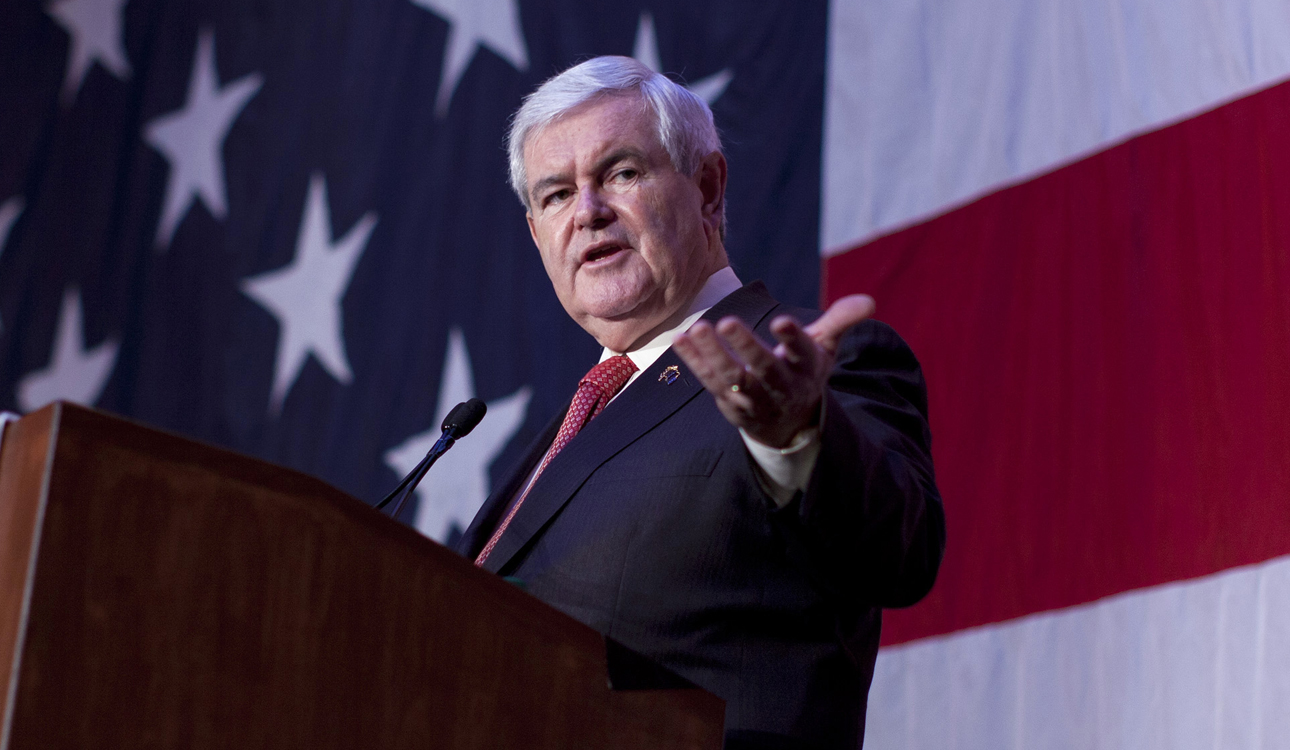

Associated Press
By Ken Thomas
Associated Press
ATLANTA — Newt Gingrich’s political career is coming full circle: The state that nourished his rise to House speaker could strike a fatal blow to his presidential ambitions — even by his own admission.
The former Georgia congressman has acknowledged that a loss in this state’s Super Tuesday primary would cripple his campaign. He’s betting he can make another comeback in Georgia and a series of Southern primaries during the next two weeks in a go-for-broke strategy to outlast his opponents and seize upon conservative unease with Mitt Romney.
“I have to win Georgia, I think, to be credible in the race,” Gingrich said Thursday, responding to a question during a breakfast with business leaders.
Gingrich told the Cobb Chamber of Commerce that Romney is “Massachusetts moderate baloney” and Rick Santorum is “Pennsylvania big labor baloney. But they’re baloney. They’re not going to fundamentally change Washington.”
He has had perhaps the most topsy-turvy campaign of any Republican, nearly imploding last year and then rising in Iowa before facing millions of dollars’ worth of negative attacks that weakened his campaign.
He rebounded to win South Carolina’s primary on Jan. 21, but since has been on a long losing streak, falling far behind in the hunt for delegates.
The comeback plan is fairly simple: Win Georgia and make a strong showing in neighboring Tennessee, Oklahoma and Ohio, thus picking up enough delegates in the process to compete with Romney and Santorum. He then hopes to pivot to Mississippi and Alabama on March 13 and stay in contention for large-delegate contests in Texas and California.
All bets may be off with a loss in Georgia.
“If he doesn’t win in Georgia, where does he win?” said Merle Black, an Emory University political scientist. “In order to have a Southern strategy, he first has to have a Georgia strategy.”
Low on cash, Gingrich’s cause has been aided by the outside group Winning Our Future, a super PAC backing the campaign that recently received another multimillion-dollar injection from Las Vegas billionaire Sheldon Adelson. The fresh funding bankrolled a large ad buy in states crucial to Gingrich’s strategy.
Gingrich boosters say Georgia and other states on the upcoming primary map share many characteristics with South Carolina, giving him a chance to rebound. With Romney facing questions among conservatives, the new ads on the air and a long slate of primaries ahead, Gingrich may have little incentive to exit.
“With Santorum’s decline, I believe, Newt will re-emerge as the anti-establishment candidate with a record of economic success,” said Rick Tyler, a senior adviser to Winning Our Future and a former Gingrich aide. “The upcoming states are receptive to him and his message.”
Although he lives in the suburbs of Washington, D.C., Gingrich has played up his local ties, making stops at the University of West Georgia, where he taught geography and history during the 1970s, and the Georgia Statehouse, where he was joined Wednesday by dozens of legislators wearing buttons that read, “I’m in Newt’s Army.”
Gingrich has led in recent polling in Georgia but faces plenty of hurdles.
It has been more than a decade since he represented suburban Atlanta, and a significant portion of the state’s population may have little memory of his time in government.
With so many delegates at stake — at 76, Georgia offers the most of any Super Tuesday state — Romney and Santorum are expected to compete here, too. Santorum campaigned in the state Thursday while Romney’s wife, Ann, was making two appearances on his behalf.
But a win in Georgia is unlikely to give Gingrich a clean sweep of the state’s delegates.
Under party rules, Georgia has three delegates for each of its 14 congressional districts. If a candidate wins a majority of votes in those districts, that candidate gets all three of the district’s delegates. But if a candidate wins by less than 50 percent, the first-place finisher gets two delegates and the runner-up is awarded a single delegate.
Three Georgia GOP party leaders — the party chair and its national committeeman and committeewoman — are automatically awarded to the statewide winner. The remaining 31 at-large delegates are allocated proportionately among candidates who get more than 20 percent of the statewide vote.





